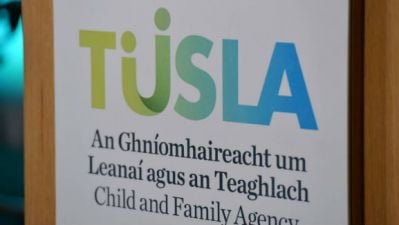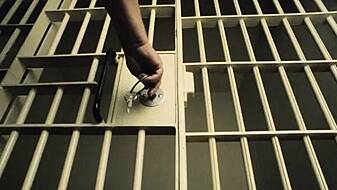A teenage boy who was in care here absconded to the UK with the help of a member of an "anti-Tusla" group, a court heard.
Tusla, the State's Child and Family Agency (CFA), sought his return from England where he was in care but the boy opposed the return.
The Court of Appeal (CoA) rejected the boy's appeal seeking to overturn a High Court order that he should be returned to Ireland and challenging a ruling that he is placed in secure accommodation under a “special care order”.
Ms Justice Mary Faherty, on behalf of the three judge CoA, in a judgment published this week, said that regardless of the fact that there was no special care place available in Ireland for him at the time his return was sought, the High Court was correct in making an order that the boy be delivered by the UK authorities to the CFA.
Outlining the background, the judge said when the boy absconded just before last Christmas he was in the care of the CFA but not in special care. He had been charged with criminal offences and was in fact on bail granted by the High Court on November 8th, 2023, when he was released from Oberstown Children Detention Campus.
The boy, who was in the full-time care of the CFA since 2013, was diagnosed with Oppositional Defiant Disorder, Reactive Attachment Disorder and ADHD (hyperactive type).
He was initially placed in foster care, but after placement breakdowns, he was placed in residential care in June 2021. After various residential care placements broke down, he was accommodated in Special Emergency Arrangements (“SEA”) between June and December 2023.
The boy has alleged that during this time in care, he was subject to a sexual assault by an unknown male.
After he absconded at Christmas from his SEA, he was located on January 19th living in a house with an unknown woman and her two children in the UK.
The boy's social work team believe that he was assisted in absconding from the jurisdiction by a member of an online “anti-Tusla” group, the judge said.
He was removed from the woman's house and placed in the care of UK social workers under an emergency protection order.
There followed a series of court hearings in the UK and Ireland which ultimately resulted in the High Court last April refusing to discharge a special care order over the boy.
The boy, who had been provided with his own legal team, opposed his return on a number of grounds including that no special care place would be available for him in Ireland. He claimed he would not feel safe in the care of the CFA because he had been sexually assaulted while in their care.
The CFA disputed his claims.
The High Court judge who rejected the boy's case noted there was "an extraordinary disconnect" in the position of the CFA caused by the “current crisis in… providing places in special care units”.
Mr Justice John Jordan said “this is a terrible indictment of the system”. The judge granted the CFA a special care order and also made an order that the UK authorities deliver him up to the CFA.
A separate legal challenge to his return began when the boy was notified that gardaí were seeking to extradite him from the UK over his breach of bail. That too was refused.
The boy appealed those decisions. The CFA, supported by his court-appointed guardian and the boy's mother, opposed the appeals.
The CoA found the High Court had not erred in making the special care order based on the evidence before the judge.

There was, Ms Justice Flaherty said, "overwhelming and uncontradicted evidence" to show it was in the boy's best interest to be detained in special care and to be returned to Ireland.
That evidence included that Ireland was his country of origin and has been his home for his entire life, and he has no connection with the UK.
There was also evidence that remaining in the UK, where he would be isolated, would only further increase his vulnerability to exploitation.
There was also information from UK authorities suggesting that members of the “anti-Tusla” group pose a real danger to the boy's physical, psychological, sexual health and wellbeing.







